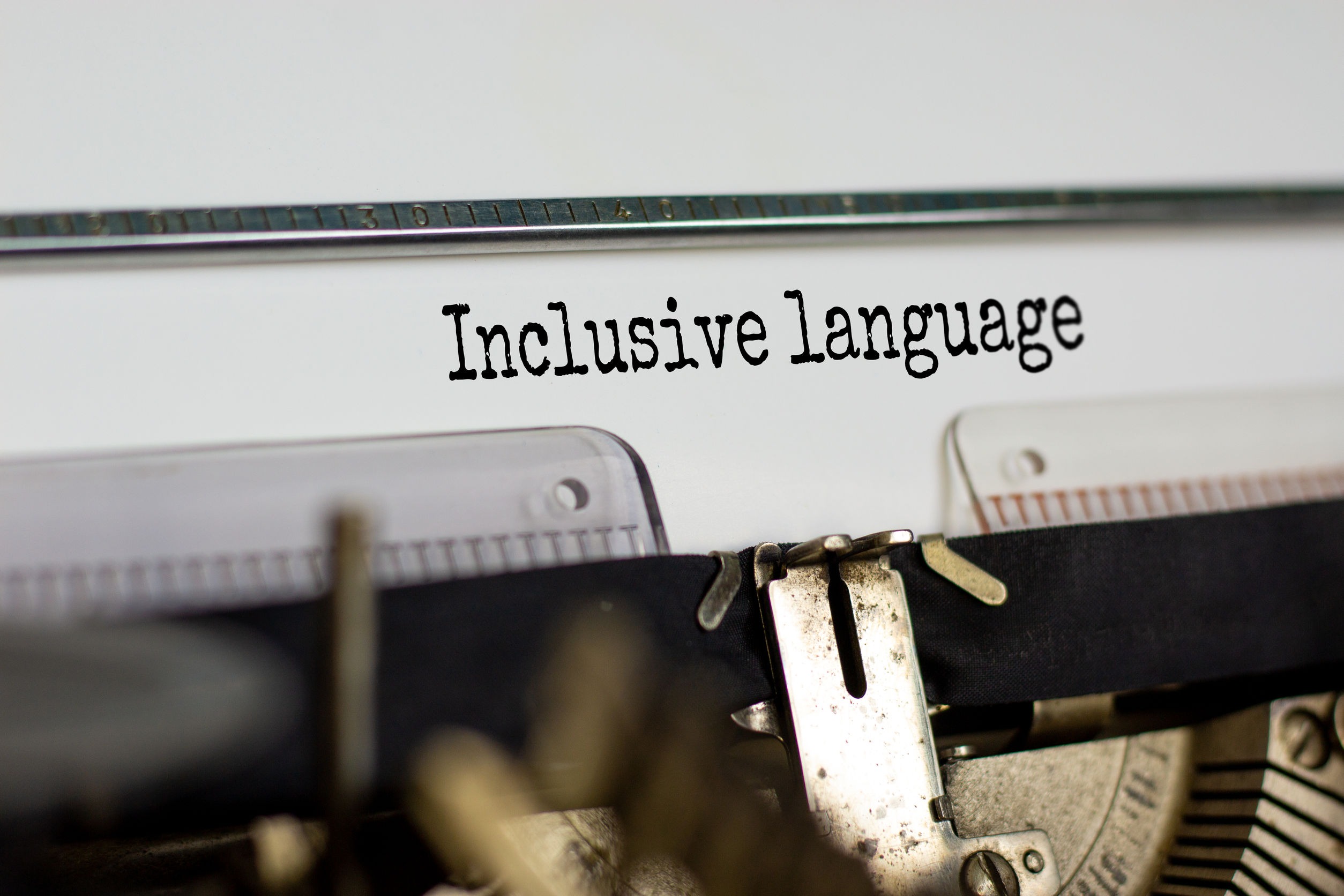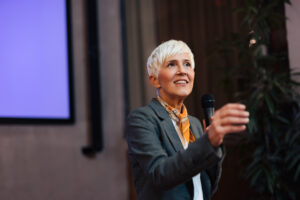What inclusive language looks like for modern speechwriters
The co-founder of Speechwriters of Color shares his tips to ensure your speech reflects the diversity of your audience.

Inclusive language, for speechwriters, is more of an ethos than a box that must be checked. It’s the product of taking your audience seriously, attempting to reflect their different backgrounds and stories with honesty and respect.
It’s also what happens when you successfully build community, or as Michael Franklin puts it, “a sense of belonging.” Franklin is co-founder of Speechwriters of Color, an organization seeking to improve representation and reach for diverse communicators, and will lead a session on inclusive language in speechwriting at Ragan’s Speechwriting and Public Affairs Virtual Conference March 4.
Inclusive language today

Michael Franklin
Language that isn’t inclusive can feel harmless, or even have strong historic ties. However, these phrases fail to meet the demands of a modern audience with more sophisticated ideas about gender identity and ethnic background.
Franklin points to phrases like “kings and queens” or “brothers and sisters” as phrases that “hold strong historic context” but don’t embody our nuanced understanding of gender in the 21st century. “It can leave non-binary folks feeling isolated,” he says.
When it comes to race, using the collective noun “blacks” to refer to Black people “is a usage of language that makes folks feel othered and will have a negative impact on an audience,” Franklin says.
Inclusive language isn’t hard to implement once you make the commitment to be mindful of words that should be left in the dustbin of history.
Expanding your horizons
How can speechwriters work to uncover their biases and educate themselves on issues where they might be missing important context? It’s crucial, Franklin says, to broaden your professional network and “consult with people who are a part of groups that have been historically marginalized.”
“In the communications industry, many historically marginalized groups like Black people, indigenous people, any other folks of color, or LGBTQ+ people are staunchly underrepresented,” Franklin explains. The dearth of representation lets communications experts, sometimes unintentionally, confirm their own biases without having their point of view challenged, he says.
Another remedy is to be an astute student of history—and go beyond the stories you think you remember from high school history class. “Writers also need to read and understand historic context of where we are today,” Franklin says. “Understanding the inherent epistemologies that have framed our belief system have tons of biases that folks must unpack individually.”
The need to address the lack of representation drove Franklin to co-found Speechwriters of Color with Mintaro Oba, speechwriter to the managing director at International Monetary Fund, who will also be speaking at Ragan’s March 4 conference.
“With Speechwriters of Color, I hope to bring more underrepresented communities into the speechwriting and executive communications field,” Franklin says. “Additionally, I hope to create a sense of community and camaraderie in a field that can feel a bit lonesome.”
Facing mistakes with humility
The truth is that any organization looking to embrace inclusion has something in their past to apologize for—and their journey forward won’t be pitch perfect. Communicators will make mistakes and fall short, and such missteps can be terrifying.
However, Franklin says that organizations and communicators who engage on these issues in good faith will get a fair hearing—and there is no substitute or shortcut around accountability.
“Intent doesn’t matter in some instances,” he says, “and the impact you have on a person (or community) has to be acknowledged no matter how good your intentions may have been. Only by taking accountability of the impact one’s actions caused can there be a path forward to ceding space and ceding power in order to change industry dynamics.”
Taking ownership of that mistake and offering a sincere apology is the most important step when you have made a mistake on inclusive language.
“Organizations should then cede space and cede power to ensuring they have a more equitable institution that reflects and represents the diversity of our nation,” he says.
Hear more from Franklin, co-founder Mintaro Oba, and other speechwriters at Ragan’s Speechwriting and Public Affairs Conference March 4.







